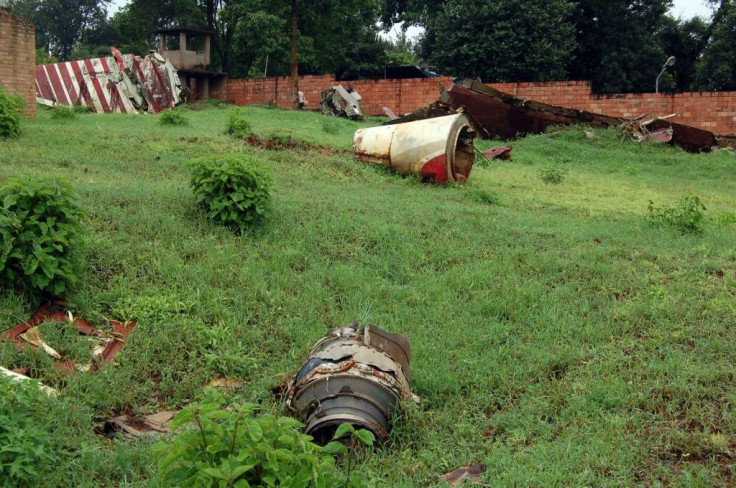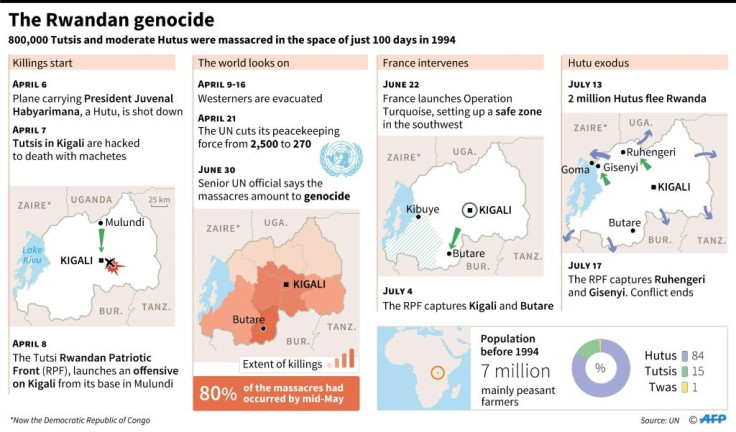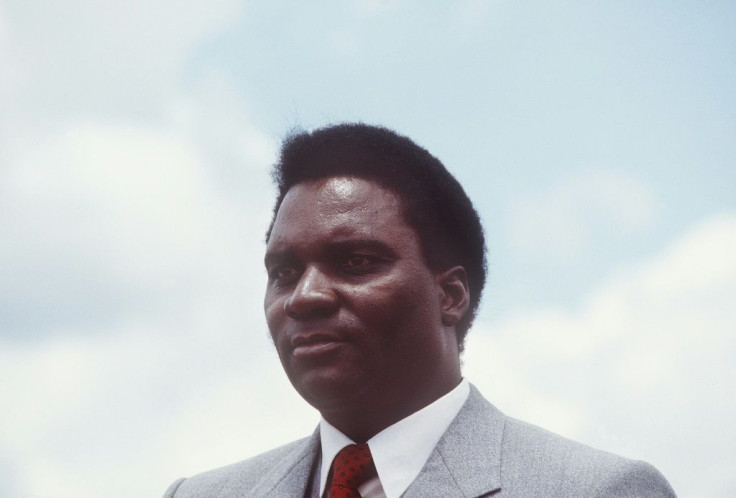French Court Rejects Fresh Probe Of Plane Downing That Sparked Rwanda Genocide
French appeals judges on Friday threw out a bid to reopen an investigation into the 1994 assassination of Rwanda's president which sparked a 100-day genocide that killed 800,000 people.
While families of those who died when Juvenal Habyarimana's plane was shot down vowed to pursue their quest for justice, Rwanda dismissed the French process as a "complete farce".
The decades-long legal battle has poisoned relations between the two countries.
Habyarimana's widow Agathe and relatives of the French crew of the downed plane said they will seek to challenge Friday's decision before France's highest court.

The appeals court in Paris had been asked to revisit a 2018 decision to throw out a probe against nine members and former members of incumbent Rwandan President Paul Kagame's entourage.
After six months of deliberations, it handed down a 64-page judgment Friday confirming that decision.
A plane carrying Habyarimana, from Rwanda's Hutu majority, was shot down in Kigali on April 6, 1994, shattering a fragile peace process and triggering a killing spree targeting mainly members of the Tutsi ethnic minority, but also moderate Hutus.
The plane was struck by at least one missile as it came in to land at Kigali, also killing Burundi's president Cyprien Ntaryamira, another Hutu, on board.
A probe was opened in France in 1998 at the request of families of the French crew.

The investigation initially focused on allies of Kagame, a Tutsi who led the Rwandan Patriotic Front (RPF) rebel movement that came to power in 1994 after defeating the genocidal Hutu regime.
Kagame, who became Rwanda's president in 2000, broke diplomatic ties with Paris between 2006 and 2009 after France issued arrest warrants for his allies.
Then in 2012, a report by French experts pinpointed the camp of Kanombe, controlled by Habyarimana's army, as the missile launch site -- shifting the focus of the investigation.

Kigali said that finding vindicated its belief that the attack was carried out by Hutu extremists who believed Habyarimana was too moderate and who opposed the Arusha peace process then under way.
As investigations dragged on in France, Kagame accused Paris ahead of the genocide's 20th anniversary in 2014, of having played a "direct role" in the killing.
And in November 2016, Kigali launched an inquiry into the alleged role of 20 French officials in the genocide that began hours after the plane was brought down.
France has always denied the allegations and last year President Emmanuel Macron announced the creation of a panel of historians and researchers to look into the claims.
In December 2018, French investigating magistrates closed the probe for lack of evidence.
The victims' families want the investigation to be reopened so that French investigators can gain access to a secret 2003 report of the International Criminal Tribunal for Rwanda said to blame Kagame's side for the attack.
"It is a decision which, unfortunately, does not surprise us," Agathe Habyarimana's lawyer Philippe Meilhac told reporters Friday, denouncing "omnipresent political" pressure on the case.
For his part, defence attorney Leon-Lef Forster regretted the families' announcement of a further appeal which he described as a "delaying tactic".
In Kigali, Justice Minister Johnston Busingye tweeted the case was "a travesty of justice, a total and complete farce that should not have happened in the first place."
In an interview this week, Kagame also expressed a wish for the matter to end.
"I believe that the past is behind us," the president told the Jeune Afrique weekly news magazine.
"Reopening a classified file is to invite problems," he said. "If things are not definitively clarified, our relations are likely to suffer one way or another."
© Copyright AFP 2024. All rights reserved.




















